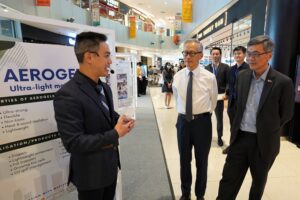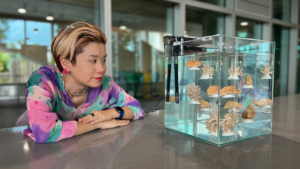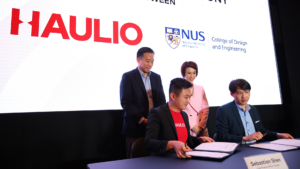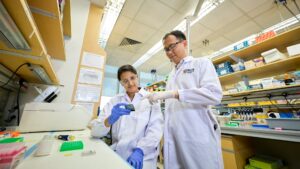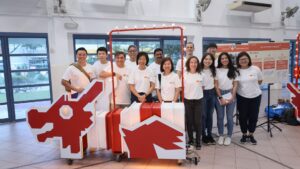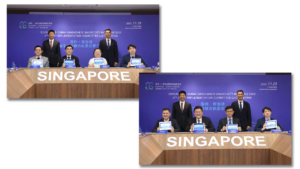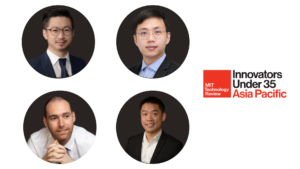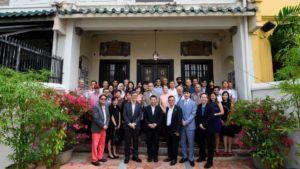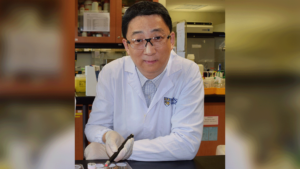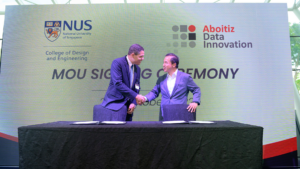RESEARCH NEWS
Exhibition showcases novel aerogels upcycled from waste
Exhibit at VivoCity mall showcases CDE research on novel aerogel technologies supported by real estate developer Mapletree.
Conservation kit encourages public to grow coral at home
Coral Rescue, a project developed by visiting researcher at Division of Industrial Design, aims to make marine science and conservation more accessible
MOU with Haulio to develop smart haulage scheduler
Digital haulier signs agreement with CDE’s Centre of Excellence in Modelling and Simulation for Next Generation Ports.
New cancer test method makes regular monitoring affordable
The S$50 blood test, developed by researchers at CDE, has high sensitivity comparable to the gold standard CT scan.
Dragon Carts lead charge to empower community solutions
Custom-designed carts are key part of Dragon Heart Community Platform, an interdisciplinary collaboration jointly led by researchers from CDE.
Smart City MOUs to tackle CO2 emissions
MOUs covering two carbon emission projects led by researchers at CDE have been signed at a meeting of the Singapore-China (Shenzhen) Smart City Initiative.
Soft robotics pioneer Prof Cecilia Laschi elevated to IEEE fellow
Prof Laschi’s work has been instrumental in the growth of soft robotics research and development worldwide.
CDE young researchers named among most influential in Asia Pacific
Four young researchers among 35 from across the region named by MIT Technology Review as the year’s most influential innovators.
Eighteen CDE faculty named among the World’s Most Influential Scientific Minds
Annual list identifies researchers who demonstrate significant impact and influence by publishing several highly cited papers during the last decade.
Living heritage lab opens in historic Singapore townhouse
ArClab, housed in a century-old townhouse, aims to become centre for teaching and research on sustainable development of the built environment.
Prof Zhang Yong elected Fellow of Singapore Academy of Engineering
Prof. Zhang is globally recognised for his leading research in light-emitting nanomaterials and implants for wireless cancer photodynamic therapy and optogenetics.
MOU with Aboitiz Data for AI-enabled sustainable systems
Partnership signed during the ADI: Let’s Press Start event held on October 27 at the ArtScience Museum, Singapore.



